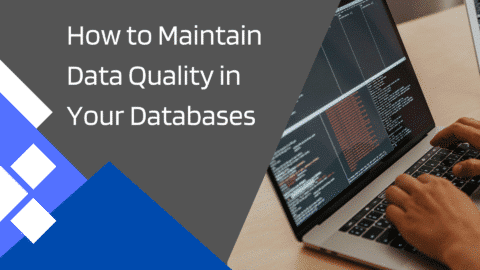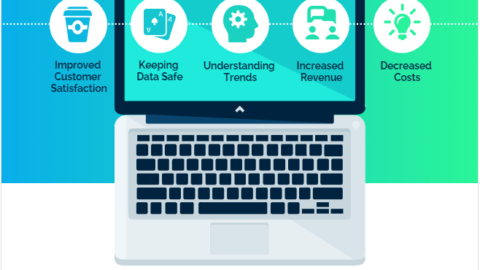Data Engineers and Cloud Technologies
As our world becomes increasingly digital, there is an ever-growing need for sophisticated data engineering solutions. To understand the significance of this, let us take a brief journey through history, where the role of data engineers has significantly evolved. Initially, they were often tucked away in IT departments, crunching numbers and maintaining databases. Today, their role is much more expansive and complex, necessitating proficiency in a multitude of tools and technologies.
Table of Contents
In the coming years, we can expect to see even more drastic changes. Shifts from on-premise infrastructure to cloud technologies are becoming increasingly prevalent. Global tech giants, like Amazon, Google, and Microsoft, are launching more sophisticated cloud-based tools for data management and analytics, drastically transforming the landscape of data engineering.
Shift from on-premise infrastructure to cloud technologies
The trend of migrating from on-premise to cloud technologies is a significant development in the data engineering world. It’s not just a matter of convenience but a strategic shift to better exploit the vast resources and scalability that cloud computing platforms provide. This transition is allowing businesses to streamline their operations and enhance their decision-making processes through real-time data analytics.
Expanded Impact of Cloud Providers and Tech Companies on Data Engineering
The influence of cloud providers and tech companies on data engineering cannot be overstated. These entities have become the architects of the modern digital world, pushing the boundaries of what’s possible in data management, processing, and analysis.
The cloud computing triumvirate, Amazon Web Services (AWS), Google Cloud Platform (GCP), and Microsoft Azure, have ushered in a new era of possibilities for data engineering. By offering scalable, on-demand computing resources, these platforms have liberated data engineers from the constraints of on-premise infrastructure. The flexibility and power offered by these cloud platforms are not just improving efficiency. But also paving the way for innovation Dataversity.
But beyond providing platforms, these tech giants are also continuously improving and innovating in the field of data management tools. They’re leading the charge in the development of sophisticated, user-friendly services that allow engineers to store, process, analyze, and extract valuable insights from vast amounts of data. For example, Google’s BigQuery, Amazon’s Redshift, and Microsoft’s Synapse Analytics have all been game-changers, offering high-speed, fully-managed, petabyte-scale data warehousing services.
Overview of new data startups and their seamless integration
As the demand for cloud-based data engineering solutions continues to rise, many startups have emerged, offering seamless integration and innovative solutions. These startups are not only reshaping how businesses handle their data. But are also setting the pace for future technological developments.
The need for data engineers to select the best tools from the multitude available
With a plethora of tools at their disposal, it is essential for data engineers to make strategic choices. Selecting the right tools can improve efficiency, streamline workflows, and lead to better outcomes. Hence, data engineers need to stay abreast of technological advancements and possess a deep understanding of the tools they use.
Data engineers play a critical role in designing, building, and maintaining data pipelines and infrastructure in an organization. With the multitude of tools and technologies available in the engineering space, selecting the best ones for specific projects and requirements becomes essential. Here are some reasons why data engineers need to carefully choose the right tools.
- Project Requirements. Different projects have varying data processing needs. Some may require real-time streaming capabilities. While others might be more focused on batch processing. Data experts need to evaluate project requirements and select tools that align with the specific needs of each project.
- Scalability. The volume of data being processed can vary significantly across projects. Some projects might deal with massive datasets that demand scalable and distributed processing frameworks. Choosing tools that can handle the expected data volume and scale seamlessly is crucial for smooth project execution.
- Performance and Efficiency. Data engineers need to assess the performance and efficiency of various tools. Factors like processing speed, resource utilization, and memory efficiency should be considered to avoid bottlenecks and ensure optimal performance.
Importance of Infrastructure as Code (IaC) for data platform consistency
Infrastructure as Code (IaC) is becoming increasingly important in maintaining data platform consistency. This practice allows data engineers to manage and provision data platforms using machine-readable definition files, which can be version-controlled and treated just like any other codebase. IaC’s growing importance underscores the growing complexity and sophistication of data engineering solutions.

Conclusion
We stand at a precipice, looking forward to an era of digital transformation led by data engineering. The rapid advancements in cloud technologies and the ever-evolving role of data engineers present both an exciting opportunity and a challenge. While there is no crystal ball to predict the precise trajectory of these developments, it’s clear that the future holds incredible potential.
Given the uncertainties and the endless possibilities, it’s crucial to keep an open mind and be ready to adapt to the changes that lie ahead. Data engineers will need to continue learning, expanding their toolsets, and working in increasingly diverse teams. They will be at the forefront of crafting innovative solutions that drive businesses forward.
Yet, even as the role of data engineers changes, some things will remain the same. The core goal will always be to deliver value by harnessing the power of data, whether through optimizing business processes, deriving valuable insights, or creating new products.
But what are your thoughts? Do you foresee different changes in the landscape of engineering? Or do you believe that these predictions hit the mark? Feel free to share your insights and join in on this thought-provoking discussion in the comments section below. After all, we are all stakeholders in the future of data engineering.

With more than 20 years of progressive experience as Program Manager and Project Manager had led complex IT projects/programs in a wide variety of industries in America, Latin America & Italia.
Mario Bisson Andini is an advanced Program Manager who is the founder of Bisson Training.











